Science
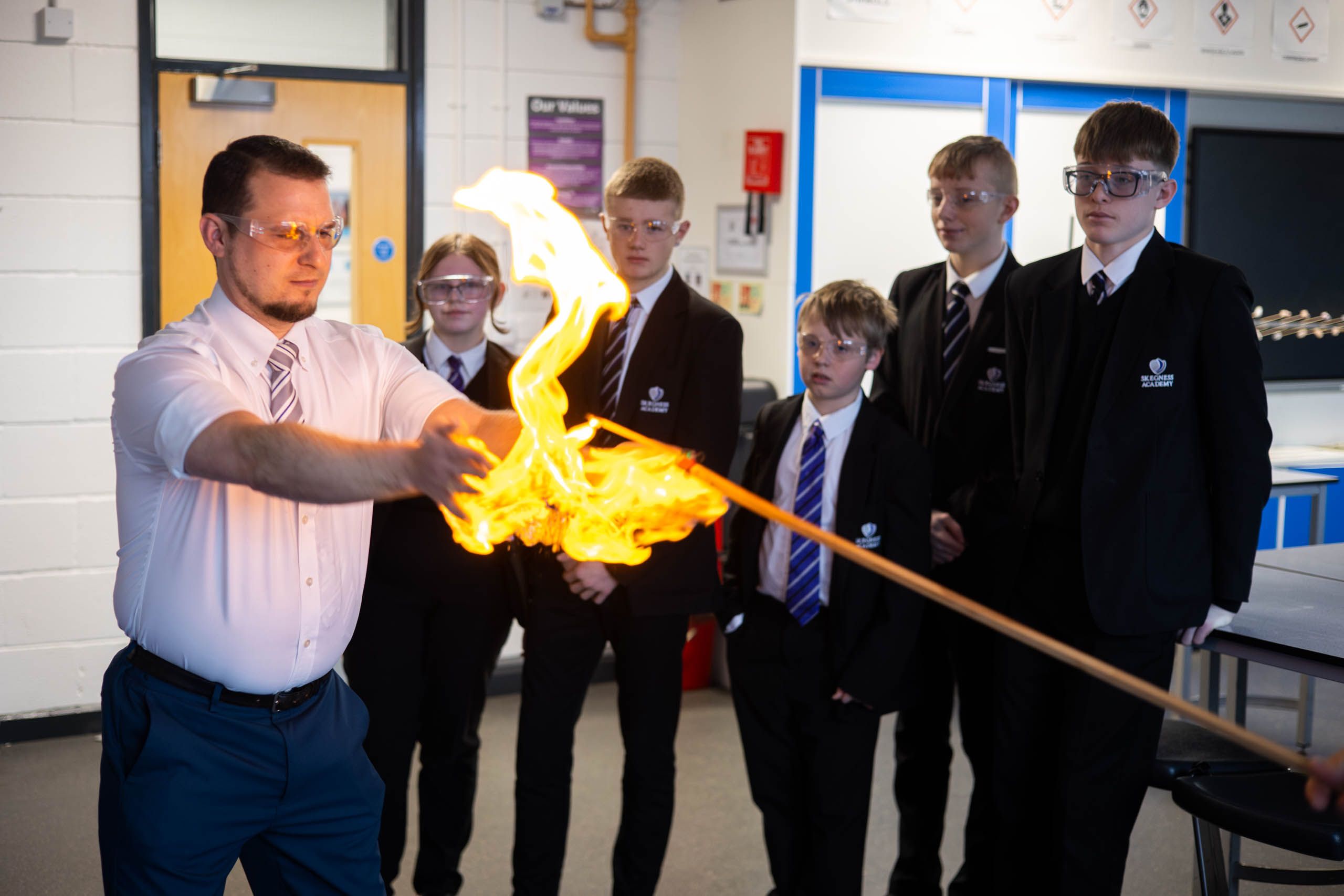
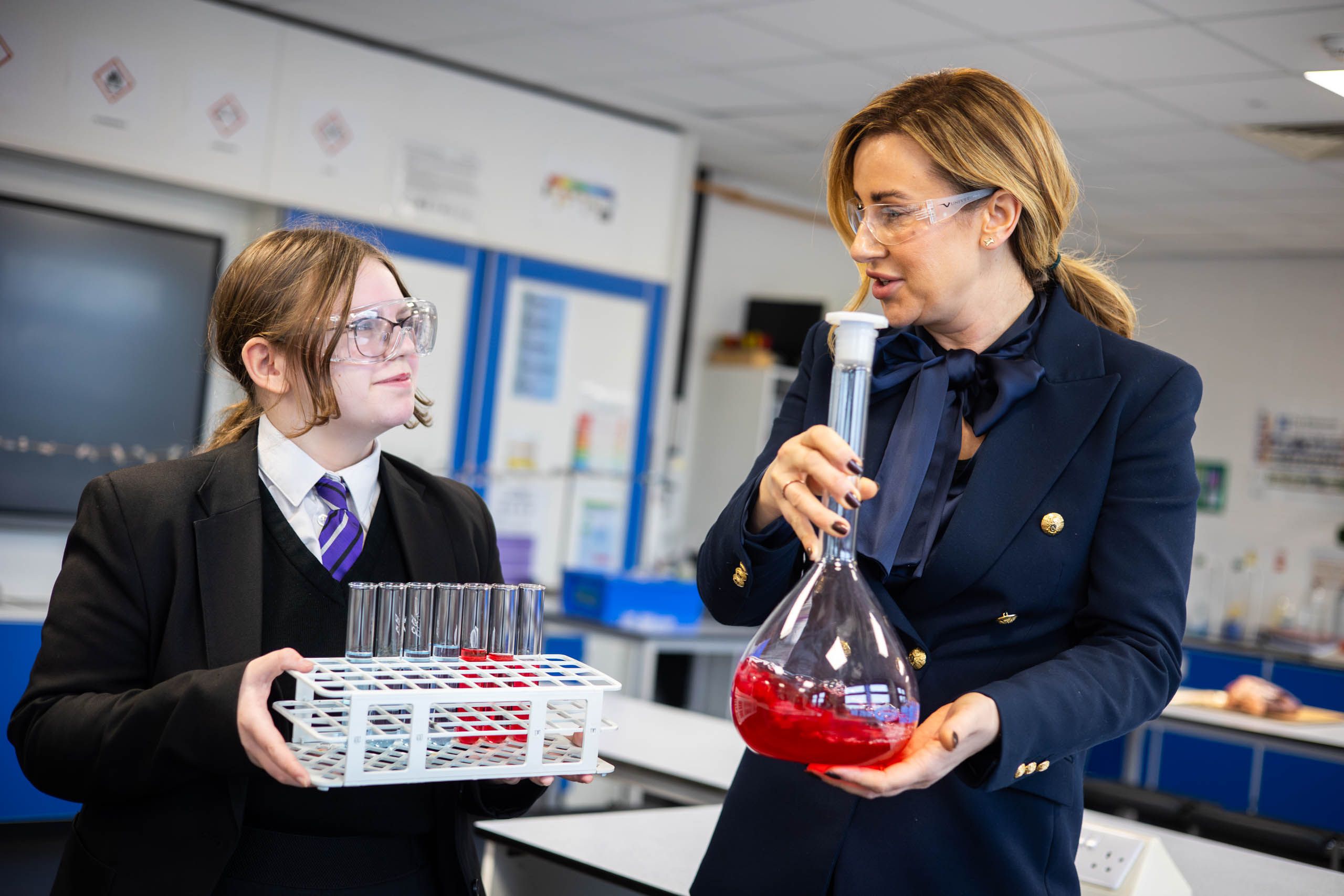
Science at the Skegness Academy looks at the world through enquiring eyes, encouraging pupils to investigate for themselves and explain why things happen in the world around them. Students develop a variety of analytical and life skills such as how to hypothesise, predict, observe, measure, record, conclude, evaluate and justify the conclusions they make.
Students become adept at making their own judgements on claims which are made in the media and elsewhere, using a variety of sources of information. We hope that all students will become independent investigators and thinkers who can take a critical look at the world around them and determine how science shapes their lives.
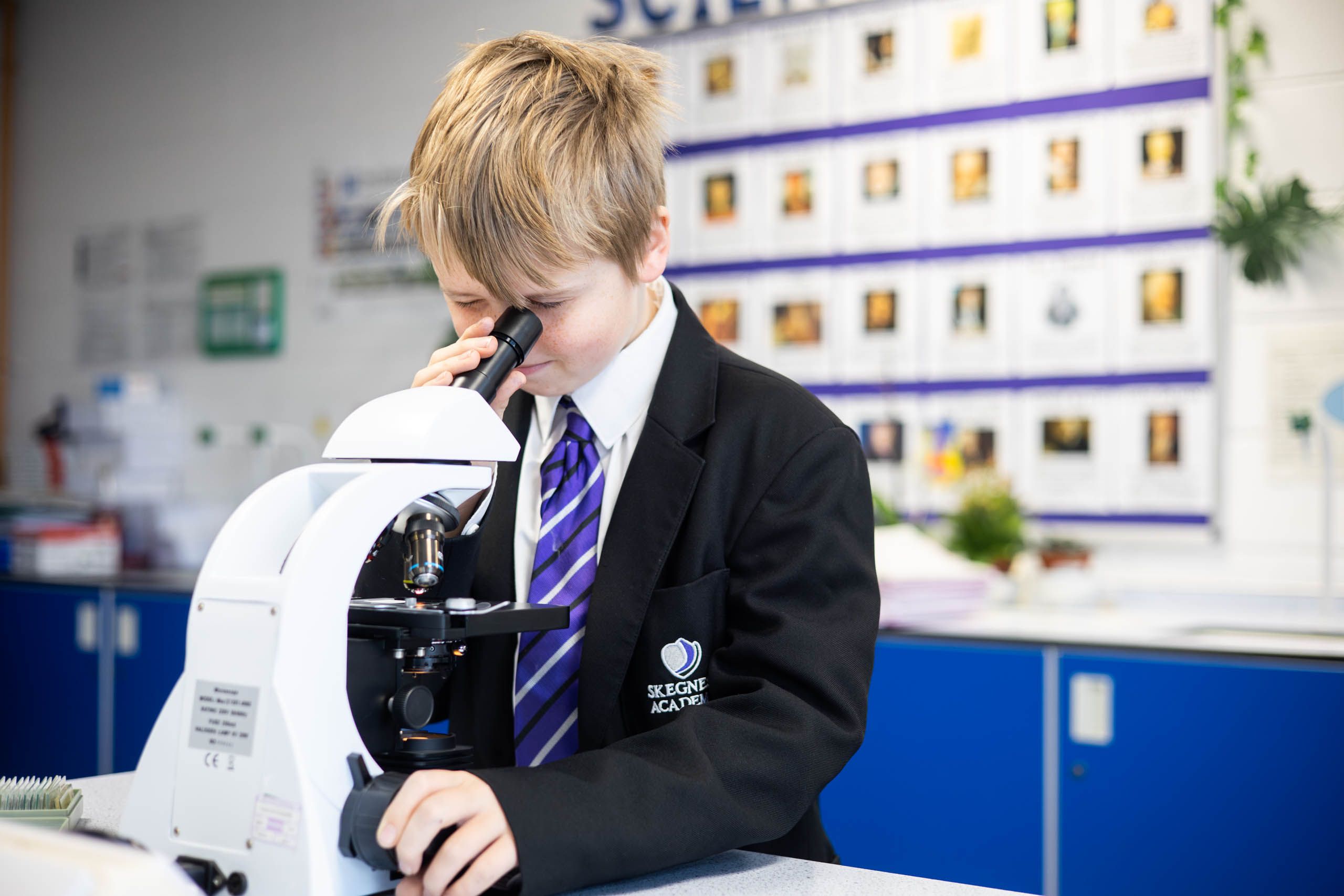
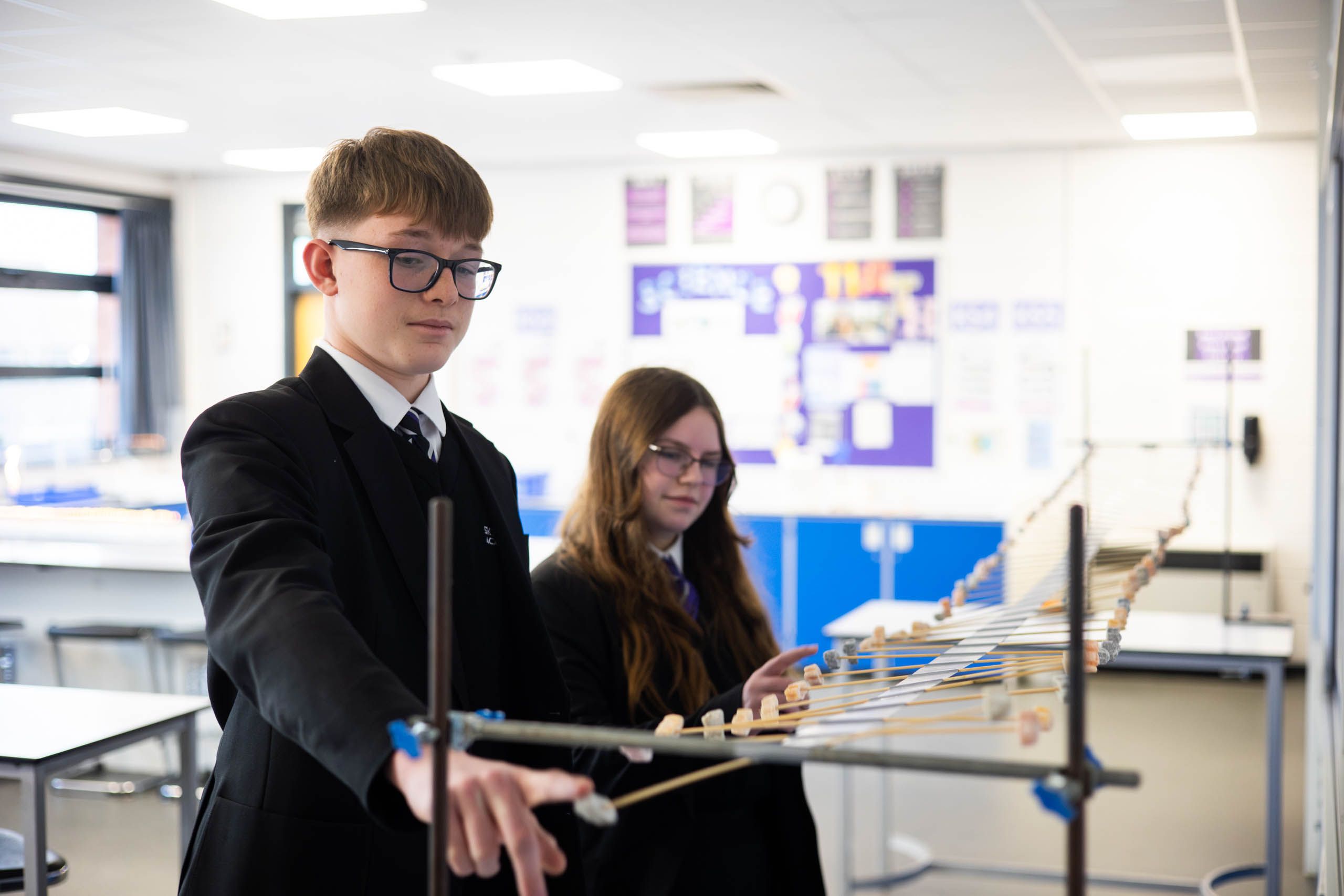
Click here to see the Big Ideas of Science at the Skegness Academy.
Curriculum Aims
Our curriculum is spiral and the ‘big ideas’ are key concepts in science which underpin the content of the curriculum. In addition, literacy and numeracy skills are developed throughout the science curriculum as proficiency in both fields is required for pupils to excel in science learning.
The science curriculum is completed by the contextualisation of scientific concepts in order to improve student engagement, widen students’ awareness of the applications of science throughout society and to provide opportunities for pupils to begin exploring their ability to apply concepts to unfamiliar contexts; embracing the creative nature of science.
We aim for students to be inspired by the science curriculum and their aspirations for the future will be elevated through the promotion of science-related careers and science skills, which are beneficial to employment in a wide range of fields including observational skills, data presentation and data analysis.
Overall, our curriculum aspires to develop investigative skills, scientific knowledge and analytical life skills that are vitally important skills, not only academically, but also for life beyond the classroom.
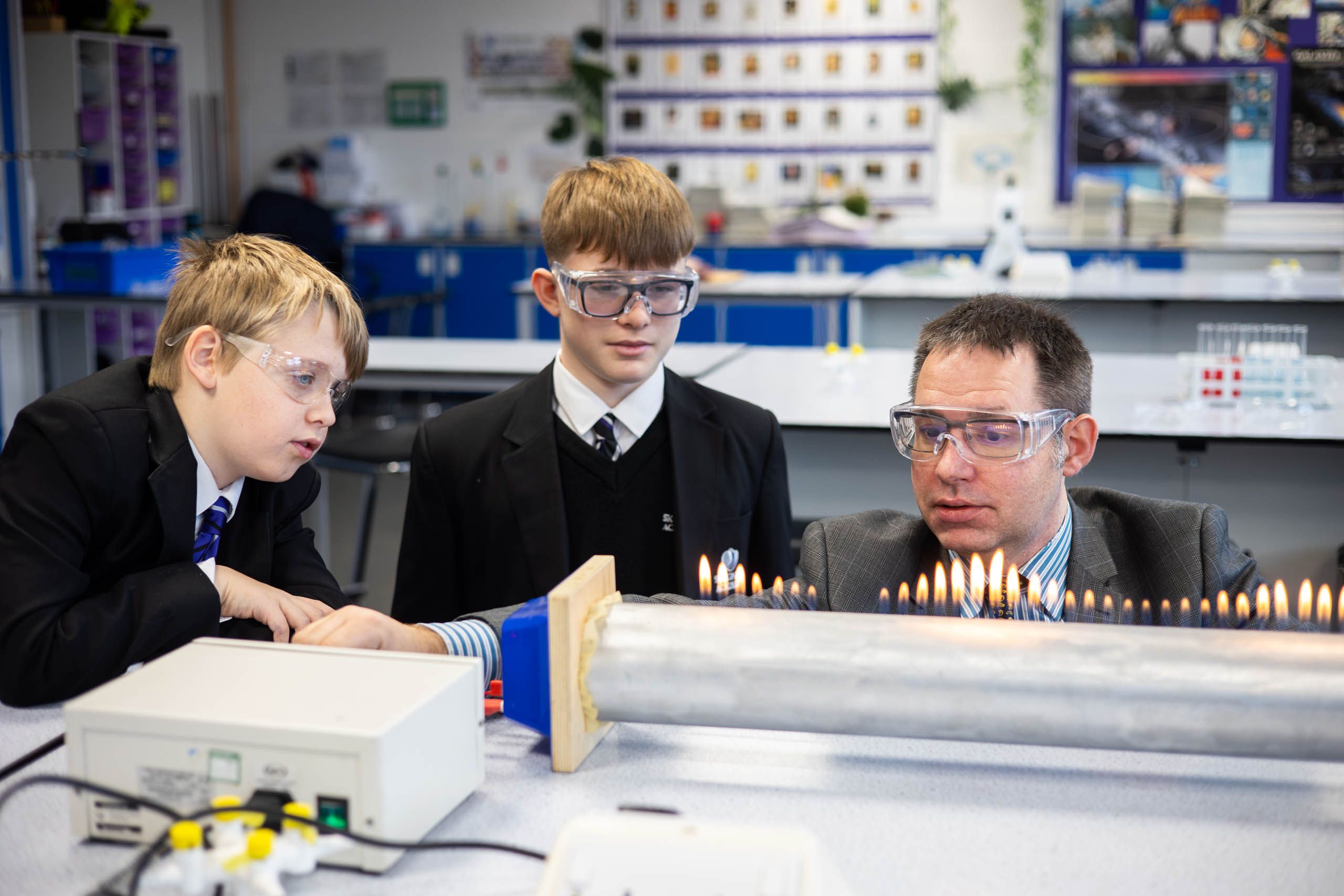
Key Stage 3 (Years 7, 8 and 9)
In science at the Skegness Academy we operate a 5 year programme of study which is split into a three year key stage 3 and a two year key stage 4. Topics are mapped to ensure students have opportunities revisit key concepts and prior learning, allowing them to fill in gaps in their knowledge.
During years 7, 8 and 9 students will learn the key scientific principles outlined in the National Curriculum. Our curriculum aligns with the Ark Mastery resource base, which is research and evidence informed and frequently updated to remain up-to-date and reflect best educational practice. At Skegness Academy, we adapt our scheme of work and resources to suit the needs of all students to make sustained progress over their journey through the academy and ensure they reach their full potential.
Our curriculum starts in Key Stage 3 with the fundamental knowledge all pupils must know in order to understand the substantive knowledge necessary to build a big picture of the world around them, and begin to develop their skills in thinking like a scientist.
At the end of every term there is an assessment which focusses on work covered over the term, with some interleaved questions to encourage long term recall. Students are encouraged to use their Knowledge Organisers to consolidate learning and review on a weekly basis.
The topics covered each term is as follows:
|
Year 7 |
Year 8 |
Year 9 |
|
Terms 1 and 2 |
Terms 1 and 2 |
Terms 1 and 2 |
|
Cells Particles Forces |
Tissues and Organs Acids and Alkalis Speed Respiration and Photosynthesis |
Growth and Differentiation The Periodic Table Acceleration |
|
Terms 3 and 4 |
Terms 3 and 4 |
Terms 3 and 4 |
|
Reproduction Atoms, Elements and Compounds Space |
Changing Substances Magnetism Life Diversity Earth Systems |
Introduction to Quantitative Chemistry Heating Genetics |
|
Terms 5 and 6 |
Terms 5 and 6 |
Terms 5 and 6 |
|
Interdependence Mixtures Energy Transfers Circuits: Current and Potential Difference |
Electric Circuits - Resistance Nutrition Light |
Using Resources Sound and Waves Home Electricity Human Interaction |
Key Stage 4 (Years 10 and 11)
At SKA, we run two GCSE courses in Key Stage 4. Combined Science builds on concepts and learning from Key Stage 3 and culminates in two GCSEs in science by completing elements of biology, chemistry and physics. All students take combined science unless they opt for Triple Science as an option which is open to all students to select when choosing their year 9 options and leads to three GCSEs in total, one in each subject.
Both courses can lead to STEM pathways in the future, whilst building valuable life skills such as critical thinking and analytical skills. We would recommend Triple Science for those students who wish to do A Levels in science or have a particular STEM career in mind but, of course, we also encourage students who have a keen interest or enjoy the subject.
We use Ark resources to plan and build lessons which link in prior learning to ensure sustained progress for students. Our Five Year Plan maps where concepts are going to be revisited and gives continuity between the Key Stages. Throughout Key Stage 4 students are given opportunities to review material and practice exam skills to build confidence.
Useful websites
There are many useful online resources that pupils can access for free.
1. Free Science Lessons is a series of recordings explaining GCSE topics, plus exam tips
http://freesciencelessons.co.uk/
2. BBC Bitesize is a collection of revision materials, quizzes and tests
https://www.bbc.com/bitesize/levels/z98jmp3
3. Physics and maths tutor shares revision notes, worksheets and past paper questions
https://www.physicsandmathstutor.com/
4. Quizlet is a collection of flash cards and revision quizzes
Aim to Pass Science!
Did you know? To access most level 3 pathways you need 5 GCSE’s and science counts as two of those.
If you start at level 2 you won’t finish level 3 until around the age of 20… but if you get those grades and start at level 3 you will be finished by 18. This could mean a difference of £36,000 in lost earnings on average.
Key Stage 5 (Years 12 and 13)
Students who continue their science studies into Key Stage 5 will complete the BTEC Level 3 National Extended Certificate in Applied Science. This course is is equivalent in size to 1 A Level and leads to a range of career and future study opportunities.
The applied science sector is diverse and wide-ranging, including, for example, biomedical, forensic, physical and chemical sciences. There are approx. 5.8 million people employed in applied science occupations in the UK. This equates to approximately 20% of the workforce. The applied science sector has a crucial role to play in delivering economic growth in the UK and allowing companies to compete in a rapidly enlarging global market.
Everyone taking this qualification will study three mandatory units:
- Principles and Application of Science I
- Practical Scientific Procedures and Techniques
- Science Investigation Skills.
Additionally, there is one optional unit called electrical circuits and their application. There are two externally set examined units, portfolio based assessments plus a practical assessment.
The Pearson BTEC Level 3 National Extended Certificate in Applied Science is intended to be an Applied General qualification for post16 students wanting to continue their education through applied learning and who aim to progress to higher education, and ultimately to employment, possibly in the applied science sector. The qualification is equivalent in size to one A level and makes up a third of a typical study program, normally alongside other A level or vocational qualifications at level 3. Students wishing to take this qualification will have completed a level 2 program of learning with GCSE or vocational qualifications.
The curriculum plans are what we expect to cover over the year. Whilst the topics and content will not change, the dates may be subject to change as we adapt our delivery to our students and whole school events.
Updated: September 2025
